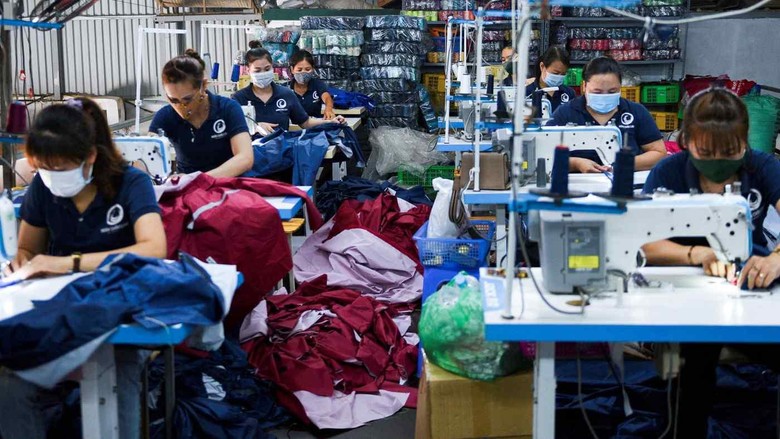
IMF Executive Board Concludes 2022 Article IV Consultation with Vietnam
The Executive Board of the International Monetary Fund (IMF) concluded the Article IV consultation [1] with Vietnam.
Vietnam entered the pandemic with robust economic growth and sound fundamentals. Prudent policies resulted in a prolonged period of high growth, price stability, and low public debt ratios. Strong FDI and trade flows boosted external buffers while banks entered the pandemic in a relatively strong position.
As elsewhere, COVID-19 led to disruptions to economic activity. In 2020, successful containment measures coupled with supportive policies made Vietnam the regional top-performing economy. A severe outbreak in April 2021 led to a historical contraction in economic activity in 2021Q3. However, a remarkable vaccination rollout facilitated the shift from a zero-tolerance strategy towards living with the virus. Policy support helped cushion the impact of COVID-19, while the government successfully maintained fiscal, external, and financial stability. Real GDP grew by 2.6 percent in 2021, slower than in 2020, owing to more protracted lockdowns and local supply disruptions. Vietnam’s external position in 2021 was assessed to be stronger than warranted by fundamentals.
A recovery is underway and high frequency indicators point to stronger momentum going into 2022, with rising retail sales, industrial production, and firm entry. Growth is expected to reach 6 percent in 2022 as activity normalization continues and the PRD is implemented. However, the recovery of the labor market is lagging as underemployment remains high. While inflation has recently picked up. due to rising commodity prices and supply-chain disruptions, it remains well below the central bank’s inflation ceiling, given economic slack and relatively stable food and administered prices. Fiscal policy is expected to remain supportive, especially via the deployment of the Program for Recovery and Development (PRD). Monetary policy is expected to remain vigilant to inflationary risks. Risks associated with problem loans, real estate, and corporate bond markets should be closely monitored, and macroprudential frameworks strengthened.
Directors commended the authorities for adopting policies to cushion the impact of the pandemic while successfully maintaining fiscal, external, and financial stability, as well as for the impressive vaccination rollout. Directors observed that while a strong economic recovery is underway, it remains uneven, with the labor market lagging, rising financial sector vulnerabilities, and longstanding structural challenges. Noting that risks are to the downside, they called for agile policymaking, proactively adjusted to the pace of the recovery and evolution of risks.
Directors underscored the need for fiscal policy to take the lead and be flexibly adjusted to evolving economic conditions. They welcomed the Program for Recovery and Development and emphasized the importance of targeting, spending efficiency, and steadfast implementation. They encouraged a gradual fiscal adjustment when the recovery becomes more entrenched, with the focus on revenue mobilization to create space for spending on social, climate, and other development objectives.
Directors stressed the need for monetary policy to be nimble and vigilant of inflationary risks. They also emphasized the importance of addressing problem loans, normalizing regulatory forbearance in a timely fashion, and closely monitoring real estate sector risks. Directors noted that over the medium term, bank capital positions need to be strengthened, and the macroprudential and private debt restructuring frameworks enhanced.
Directors remarked that Vietnam’s external position is stronger than warranted by fundamentals and desirable policies. In this regard, they called for continued efforts to boost domestic private investment and enhance social safety nets. Directors welcomed recent steps towards greater exchange rate flexibility and monetary policy modernization and encouraged continued efforts in this direction.
Directors stressed the importance of structural reforms to improve the business environment, enhance productivity, and boost potential growth. They concurred that priority should be given to reducing labor skill-mismatches, promoting digital transformation, and ensuring a level playing field, particularly for SMEs. Directors also praised Vietnam’s ambitious environmental agenda and urged the translation of targets into concrete policy actions. They welcomed continued efforts to improve economic institutions and strengthen governance, including the AML-CFT framework, and underscored the importance of strengthening data frameworks.


























